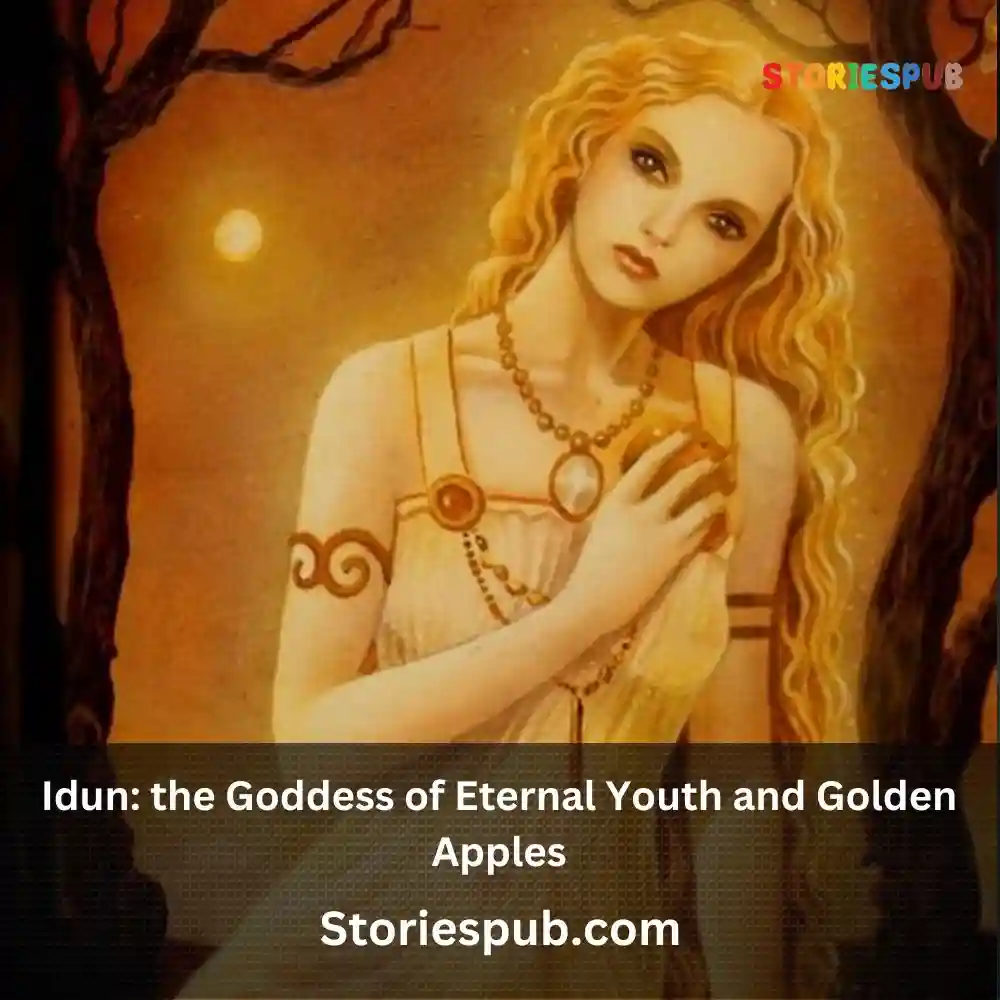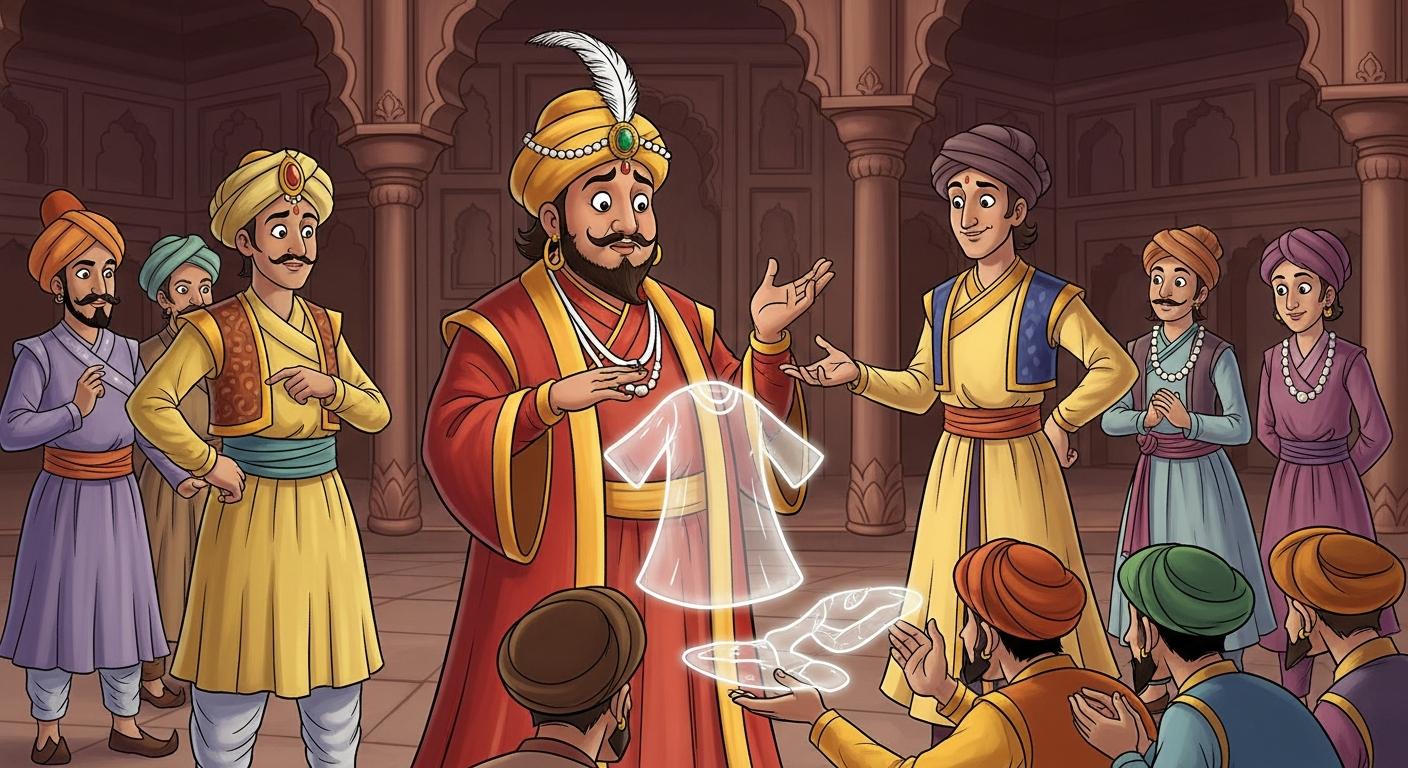Summarize this Article with:
Idun: the Goddess of Eternal Youth and Golden Apples

Image Credit : Pinterest
Introduction
Norse mythology is a collection of stories and beliefs from ancient Scandinavia, Iceland, and Northern Germany. It consists of gods, goddesses, giants, and other mythical creatures that are the central characters in these tales. These stories have been passed down through generations and have inspired a lot of literature, art, and entertainment.
At the center of Norse mythology are the gods and goddesses who lived in Asgard – one of the nine worlds that were connected by Yggdrasil – the world tree. The gods had supernatural powers and abilities that set them apart from humans.
They were known for their courage, strength, wisdom, cunningness, magic, fertility among other qualities. One such goddess is Idun – The goddess of youth and keeper of the golden apples.
Idun was an important figure in Norse mythology because she provided immortality to the gods by giving them golden apples to eat. Her role made her a crucial player in maintaining order between Asgardian forces.
Brief overview of Norse mythology and the gods and goddesses
Norse mythology has distinct characteristics when compared to other mythologies around the world. The myths are full of violence but also with romance as well as intrigue featuring numerous epic quests for power or wealth along with fights between powerful beings including Gods themselves!
The Aesir tribe ruled over Asgard which was populated by immortal beings known as Gods like Odin – King of Gods said to be wise beyond measure; Thor – God of Thunder renowned for his strength; Loki – God associated with mischief but also cleverness among others. The Vanir tribe despite being considered Gods had a different culture than their Aesir counterparts where more emphasis was placed on fertility magic rather than war or battle skills seen with Odin’s clan which may have contributed towards Norse culture offering great emphasis on marriage vows.
Introduction of Idun- The goddess of youth and keeper of the golden apples
Idun was a goddess who belonged to the Aesir tribe, which ruled over Asgard. She was known as the guardian of youth and beauty because she had the ability to provide immortality by giving golden apples to gods.
Her presence in Asgard played an important role in maintaining peace among the gods. She was married to Bragi, God of poetry, and their love story was known throughout Norse mythology.
Idun became a symbol of eternal youth, as her apples were used by the gods to remain forever young. Her appearance is described as beautiful with long golden hair, wearing a simple dress that highlighted her natural beauty.
In Norse mythology, her name means “rejuvenation” or “to rejuvenate.” Her significance lies in her ability to provide eternal youthfulness through her magic apples. Without her presence in Asgard, it would have been impossible for the other gods to maintain their immortal status.
The Role of Idun in Norse Mythology
Idun is one of the lesser-known goddesses in Norse mythology, but her role is critical to the survival of the gods and goddesses. According to legend, Idun was responsible for keeping the golden apples that kept the gods young and immortal.
Her role as keeper of these apples, and her ability to provide eternal youth, made her an important figure among the gods. In addition to being a keeper of the golden apples, Idun was also considered a goddess of fertility and spring.
Her association with these themes made her popular among farmers and those who relied on agriculture for their livelihood. It was believed that offering prayers or sacrifices to Idun could bring about bountiful harvests and ensure success in planting seasons.
The Importance of The Golden Apples
The golden apples were considered a source of great power in Norse mythology. It was believed that anyone who ate one would be granted eternal youth and immortality. This meant that whoever controlled access to these apples held significant power over other gods or beings.
Idun’s role as the keeper of these apples meant that she had great influence among other gods and goddesses. She provided them with access to these powerful fruits which allowed them to stay young forever.
How Idun’s Actions Affect Other Gods & Goddesses
The importance of Idun’s role cannot be overstated – without access to her golden apples, other gods would begin aging rapidly. This fact became painfully clear when Loki tricked Idun into leaving Asgard (the home of gods) with him resulting in her capture by Thjazi – a giant seeking revenge on behalf his daughter Skadi. As soon as it became clear that something had happened to Idun – because the gods started rapidly aging – a search party was quickly dispatched to find her.
This highlights the importance of Idun’s role in Norse mythology as her actions directly impact the fate of other gods. Idun’s role as a goddess in Norse mythology is significant because of her responsibilities as the keeper of the golden apples that provide eternal youth and immortality to other gods and goddesses.
Her influence extends beyond Asgard into agriculture and fertility, making her an important figure among mortals as well. Without access to these apples, other gods would begin aging rapidly which makes Idun’s role crucial to their survival.
The Story Begins: The Theft of Idun’s Apples
Idun was well-known among the gods and goddesses in Asgard as the keeper of the golden apples. These apples were magical fruit that provided immortality and everlasting youth to those who ate them. The gods and goddesses relied on Idun to maintain their youthful appearance and were willing to do anything to protect her and her precious apples.
Setting: Asgard, Home to the Gods and Goddesses
Asgard was a beautiful kingdom where gods and goddesses lived in harmony with each other. It was a place where every corner exuded elegance, magic, beauty, and power. The kingdom was split into different realms including Vanaheimr, Nidavellir, Alfheimr, Midgard (Earth), Jotunheimr, Svartalfheimr, Muspelheimr, Helheimr, and more.
Introduction to Loki
Loki was a trickster god who delighted in causing chaos among the other gods. He had a talent for persuasion that he used to manipulate other gods into his plans – always up to no good. Loki had grown jealous of Idun’s popularity among the other gods due to her possession of magical golden apples.
Loki Tricks Idun Into Leaving Asgard With Him
Loki plotted with an evil plan intending to capture Idun by tricking her with flattery words. Knowing that she would never leave Asgard willingly or without consent from Odin or Frigg – leaders of Asgard – Loki came up with a cunning plan. He approached Idun while she was picking fruits from one of her gardens in Asgard.
“Idun,” he said sweetly as he approached her garden under the guise of admiration. “I couldn’t help but notice how beautiful your garden is this year. Your work here is truly marvelous.”
Flattered and pleased, Idun smiled warmly at Loki. She appreciated compliments, especially from one of the most powerful gods in Asgard.
“Thank you, Loki,” she replied with gratitude. “It means a lot coming from you.”
The Two Venture Into a Dark Forest Where They Encounter Thjazi
Loki convinced Idun to leave Asgard with him to show her something new that he found in the forest outside of Asgard. He promised her that it would be an adventure of a lifetime and one she would never forget.
The two traveled deep into the forest where they stumbled upon Thjazi – a giant who sought revenge on the gods for their previous actions against him. Upon recognizing Loki and Idun, he captured Idun while threatening Loki with his life if he did not comply.
Loki pleaded with Thjazi for mercy, but Thjazi was determined to seek vengeance by holding Idun captive until he received retribution from the other gods that had wronged him before. To be continued…
The Imprisonment in Jotunheim
Idun’s kidnapping led to the gods’ aging, which was a significant problem. The gods, without wasting any time, began to search for Idun. They searched every corner of Asgard, but they could not find her.
They managed to trace Loki and found out that he had taken Idun with him. After further questioning, Loki admitted his mistake and disclosed that he had brought Idun to a giant named Thjazi.
The other gods realized the severity of the situation; they knew that they had to act fast before it was too late. They sent Thor on a mission to retrieve their beloved goddess.
Thor knew that this would not be an easy task; therefore, he set off with all his might and determination. Thor eventually reached Jotunheim and began his search for Idun.
He encountered numerous obstacles along the way but remained persistent in his efforts. After what seemed like an eternity of searching through the vastness of Jotunheim, he found Thjazi’s home.
Thjazi Captures Idun and Takes Her to Jotunheim
When Thjazi saw Thor approaching his home while looking for Idun, he grew angry and turned into an eagle with giant wingspan for battle. Thor challenged him head-on with his hammer Mjolnir and fought fiercely against Thjazi in eagle form until Thjazi was defeated. Thor soon discovered where Thjazi had hidden Idun – inside a cage made out of magic spells as well as gold bars kept deep within the mountain range in Jotunheim – it was heavily guarded by giants who were armed with sharp swords and spears.
Without hesitation, Thor attacked the guards with great force but soon discovered that they were too powerful and numerous for him alone to defeat them all. So, he sent a message to the rest of the gods for help.
The Other Gods Realize That Without Idun’s Apples, They Will Begin to Age Rapidly
The other gods received Thor’s message and quickly assembled a search party. They knew that if they did not find Idun and her golden apples soon, they would begin to age rapidly.
The thought of growing old and frail terrified them at their core as it meant losing their strength and abilities. Odin organized the group so that each god had a specific task.
He instructed his son, Heimdallr, to use his keen senses to locate Idun. Freya was tasked with using her magic powers to create an illusion around Thjazi’s home so that the giants could not see them approaching while Loki was supposed to help in gaining access into Thjazi’s hidden fortress.
They Send Out Search Parties To Find Her
The search party began their mission, carefully navigating through Jotunheim while avoiding detection by any of Thjazi’s minions along the way. Heimdallr used his sharp senses to track down Idun’s location deep within the mountain range where she was kept captive.
Thor led the charge into Thjazi’s lair while Freya created an illusion around them so that they could pass unnoticed by the giant guards. They successfully broke open Idun’s cage and freed her while Loki stole back her precious golden apples.
With their mission accomplished, Thor carried Idun on his shoulders as they headed back towards Asgard with haste before anyone tried stopping them again. The other gods rejoiced upon seeing them all return safely with relief knowing that they were safe once more because such an incident must never happen again!
Rescue Mission: Saving Idun from Thjazi’s Cl
The Gods Plan a Rescue Mission
As the other gods realize that without Idun’s apples, they will begin to age rapidly, they understand the gravity of the situation. They quickly send out search parties to find her. They eventually come across Loki who reveals what has happened and where Idun is being held captive.
The gods then make a plan to rescue Idun- Thor and Loki disguise themselves as Freyja and her handmaiden respectively, while Heimdall lends them his magic cloak to fly to Jotunheim. The giant Thjazi had built his house near the entrance of his cave where he kept Idun hostage.
The Rescue Attempt
Thor uses his hammer Mjolnir to kill Thjazi in pursuit of rescuing Idun. Meanwhile, Loki uses his wit to lure Idun outside by telling her that he has found apples that are even more delicious than hers. It is at this point that Thor swoops in with Mjolnir and brings about an end to Thjazi.
The group then flies back towards Asgard with Idun safely in tow. Upon reaching Asgard, each god takes their turn eating an apple from Idun’s basket, restoring their youth once again.
Conclusion
The story of Idun serves as a reminder of how important it is to protect what is valuable and ensure cooperation among individuals for a common goal. Moreover, it teaches us about the price we pay for vanity when we act on personal interest without considering its consequences on others.
Through their sacrifice and cooperation, the gods were able not only to save their friend but also restore their youthfulness once again in unison proving that unity always wins over individual interest. Norse mythology does not only provide a rich cultural history, but it also has valuable lessons to teach people.
The story of Idun and her apples provides us with a lesson on the importance of protecting what we hold dear, working together towards a common goal, and putting aside individual interests to achieve unity. It is a reminder that what seems insignificant can have great power if it is valued and protected.
Hey kids, how much did you like The Idun: the Goddess of Eternal Youth and Golden Apples ? Please share your view in the comment box. Also, please share this story with your friends on social media so they can also enjoy it, and for more such Norse Mythology, , please bookmark storiespub.com.
Related Post :
Idun FAQ
Who is Idun in Norse mythology?
Idun is a goddess in Norse mythology who is associated with eternal youth and golden apples.
What does Idun look like?
The appearance of Idun is not described in detail in Norse mythology, but she is often depicted as a beautiful and youthful woman.
What is Idun's role in Norse mythology?
Idun is responsible for keeping the golden apples of youth, which are said to grant immortality to the gods.
What happens if the gods do not have access to Idun's golden apples?
If the gods do not have access to Idun's golden apples, they begin to age and lose their immortality.
Is Idun worshipped in modern times?
Idun is not worshipped as part of any organized religion in modern times, but she is still studied and appreciated by scholars and enthusiasts of Norse mythology.
What are some other stories involving Idun?
Idun appears in several Norse myths, including one in which she is kidnapped by the giant Thjazi and is rescued by the god Loki.
What is the significance of Idun in Norse mythology?
Idun represents the idea of eternal youth and the desire for immortality in Norse mythology, and her role as the keeper of the golden apples highlights the importance of preserving youth and vitality.
Are there any symbols associated with Idun?
Idun is often depicted with a basket of golden apples, which she uses to grant eternal youth to the gods.
Are there any modern adaptations of Idun in popular culture?
Idun has been adapted in various forms in popular culture, including in comic books, video games, and television shows. She is often portrayed as a beautiful and mysterious figure with control over youth and vitality.
Is Idun similar to other goddesses of youth and vitality in other cultures?
The concept of goddesses of youth and vitality is found in many cultures throughout the world, and there are some similarities between Idun and other goddesses of youth and vitality, such as the Greek goddess Hebe and the Roman goddess Juventas.











